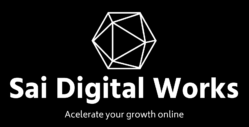Consultancy and strategy are pivotal elements in achieving success in search engine marketing (SEM) and other business areas. Here’s a detailed look at how consultancy and strategy can be applied, particularly in the context of SEM:
**1. Understanding Business Objectives and Goals
Consultancy:
- Initial Assessment: A consultant will work with you to understand your business objectives, target audience, and current digital marketing efforts.
- Goal Setting: Clearly define what you aim to achieve with your SEM campaigns (e.g., increase website traffic, generate leads, boost sales).
Strategy:
- Alignment: Ensure that SEM strategies align with overall business goals. For example, if the goal is brand awareness, focus on broad match keywords and high-visibility ad placements.
- KPIs: Identify key performance indicators (KPIs) to measure the success of your SEM efforts.
**2. Market and Competitor Analysis
Consultancy:
- Market Research: Analyze the market landscape to identify trends, opportunities, and challenges relevant to your industry.
- Competitor Analysis: Examine competitors’ SEM strategies, including their keywords, ad copy, and bidding strategies.
Strategy:
- Competitive Positioning: Develop strategies to differentiate your SEM campaigns from competitors. This might include targeting niche keywords or creating unique value propositions in your ad copy.
- Opportunity Identification: Spot gaps in the market that your competitors might have missed.
**3. Keyword Research and Strategy
Consultancy:
- Keyword Selection: Guide you through the process of selecting relevant and high-performing keywords using tools like Google Keyword Planner and SEMrush.
- Keyword Mapping: Assist in mapping keywords to different stages of the customer journey (awareness, consideration, decision).
Strategy:
- Keyword Strategy: Develop a keyword strategy that balances high-volume, competitive keywords with long-tail keywords that might have lower competition.
- Bidding Strategy: Create a bidding strategy that optimizes spend based on keyword performance and budget constraints.
**4. Campaign Structure and Management
Consultancy:
- Campaign Setup: Provide guidance on setting up campaigns, ad groups, and ads in SEM platforms like Google Ads.
- Ad Copywriting: Offer best practices for writing compelling ad copy that drives clicks and conversions.
Strategy:
- Campaign Structure: Design a campaign structure that allows for effective management and optimization. This includes organizing ad groups by theme and setting up appropriate ad extensions.
- Performance Optimization: Continuously monitor and adjust bids, targeting, and ad copy to optimize performance based on data.
**5. Budget Management
Consultancy:
- Budget Planning: Help you establish a realistic budget for your SEM campaigns based on your goals and market conditions.
- Cost Management: Advise on how to allocate your budget effectively across different campaigns and ad groups.
Strategy:
- Budget Allocation: Develop a strategy for allocating your budget to maximize ROI, including setting daily and monthly limits.
- Cost-Effectiveness: Use data to optimize spending, ensuring that you’re getting the best possible return on your investment.
**6. Performance Tracking and Reporting
Consultancy:
- Analytics Setup: Ensure that tracking tools and conversion metrics are properly set up to monitor campaign performance.
- Report Interpretation: Help you interpret performance reports and understand the data in the context of your goals.
Strategy:
- Data-Driven Decisions: Use performance data to make informed decisions and refine your SEM strategy.
- Reporting Schedule: Establish a regular reporting schedule to review performance and adjust strategies as needed.
**7. Optimization and Continuous Improvement
Consultancy:
- Ongoing Support: Provide ongoing support to address any issues and refine strategies based on performance data.
- Best Practices: Share industry best practices and updates to keep your SEM efforts current.
Strategy:
- A/B Testing: Implement A/B testing to optimize ad copy, landing pages, and bidding strategies.
- Continuous Refinement: Regularly review and adjust your SEM strategy to adapt to changes in the market and improve performance.
**8. Training and Knowledge Transfer
Consultancy:
- Training Sessions: Offer training sessions to your team on SEM best practices, tools, and techniques.
- Knowledge Transfer: Ensure that your team understands how to manage and optimize SEM campaigns effectively.
